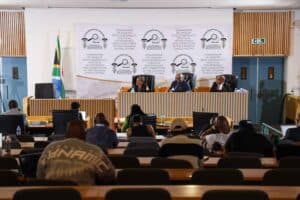Some investors are worried that some of Ramaphosa’s Cabinet is still from the Zuma era.

The investment conference initiated by President Cyril Ramaphosa is a strong statement of intent to create a favourable environment for investment, to build confidence and communicate the government’s new direction on the economy, political analysts say.
Mzukisi Qobo, associate professor at the University of Johannesburg, said Ramaphosa wanted to assure investors that South Africa has a promising future and announce that South Africa is open for business.
“It was a moment for him to tell them what South Africa has and to encourage domestic investors to lead the charge.
“There is a need to close the trust deficit between government and business and for Team SA to work together,” Qobo said.
Another analyst, Ralph Mathekga, said: “The conference is a strong statement by government of its intention to create a favourable environment for investors. The message is positive. More work needs to be done on the ground, however.”
They were reacting to Ramaphosa’s promises on the first day of the three-day South African Investment Conference in Johannesburg on Friday.
He told global and local investors and business and political role players that South Africa was a safe haven for investment and there was no need for concern about policy direction, including on land expropriation without compensation.
Ramaphosa outlined what his government has been doing in the past five months to lure investors to South Africa and to make the environment conducive.
The Mining Charter had been revised to address concerns, the visa regime has been made easier for investors, and investment incentives have been introduced.
A number of investors were expected to make announcements about plans to invest in the country.
However, according to Qobo, although Ramaphosa explained the purposes of his stimulus packages and recovery plan, the plan to fight corruption and to have appropriate proper policy direction, investors wouldn’t be in a hurry to invest.
Qobo did not expect major announcements, as he said investors would adopt a wait and see attitude.
“If there were any major announcements, they would have been concluded prior to the conference.
“A lot of investment flows will be from business-to-business at a later stage and the networking among businesspeople at the conference would facilitate that,” he said.
Yesterday the summit broke into smaller commissions to discuss various positions on infrastructure, energy, water, information and communications technology, agriculture and agro-processing, venture capital, entrepreneurship and small business development.
This was after delegates had initial interactions with the newly appointed investment envoys and Ramaphosa.
The conference was an opportunity for ministers such as Mineral Resources Minister Gwede Mantashe and business to give their perspectives on what still needed to be done.
“The value of the conference was confidence-building, creating a new trust in SA and to shape the investment climate differently to excite people that something is happening,” Qobo said.
He said domestic investors were familiar with the situation but had issues they wanted to be addressed, while foreign investors would formulate their own views of the country.
“There is still a bit of uncertainty. There is no indication of clear structural changes in the macro economy and policy direction.
“The private sector wants to see big announcements, for instance on the data spectrum and other aspects that would reduce the cost of doing business.”
The professor said although Ramaphosa was favoured by business, there was still some doubt because of the perception that he did not hold complete authority due to the political chaos in the ANC.
He said it was worrying for some investors, both domestically and internationally, that the bulk of Ramaphosa’s Cabinet was from the era of former president Jacob Zuma.
The analyst cited the example of Minister of Home Affairs Malusi Gigaba, saying some investors might not be comfortable that he was driving the easing of the visa regime.
“Some would imagine that [Ramaphosa] will only have authority once he has been elected president after the 2019 elections.”
For more news your way, download The Citizen’s app for iOS and Android.






